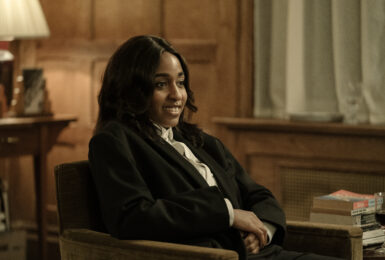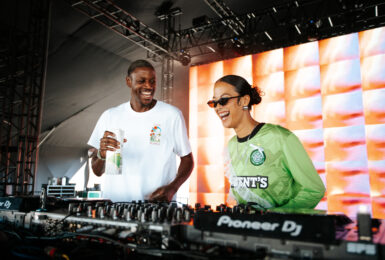
COVID-19CultureHealthMusic
music life in the time of virus: empathy not hate
It is an aphorism that people’s true colors are clearest in a crisis. Often, we can see personal values coming into view from afar — race, gender and class contempt underpinning “free speech” “opinions” and “points of view” which had been projected in one way or another beforehand, and what-not. But, f*ck, is it still sad when such “moral” misgivings appear among a community of independent artists and musicians who supposedly share values — especially when the points of contention are the methods of survival in the said crisis, when everyone is already sharing a much-too-small piece of a pie. People who lead with vitriol and grandstanding, when empathy is what we need most.
Last week, when the cancellations of all musical events first began roiling global clubbing community, the women’s DJ collective/booking agency, Discwoman (whose co-founder, Frankie Hutchinson, we interviewed recently) posted a social-feed note that seemed both innocuous and necessary under the circumstances. The note reached out to their numerous followers to help its artists: “we’re navigating a completely unknown territory with a government that has no compassion so turning to each other feels like the only option. our artists have lost thousands in dollars worth of shows, if you’re in a position to help you can venmo or PayPal. sending so much love to everyone who is struggling right now.” It was, to anyone who understood the unprecedented situation we were entering, simply a case of people trying to batten down the hatches and look after artists whose careers they felt, to a great degree, responsible for.
There was, then, much surprise when respected, veteran British DJ Jane Fitz, responded to the note, even going so far as to repost it on her own IG feed (since pulled down), with the acerbic one-liner: “if ever there was a good reason to self-isolate, it’s to keep me far away from these disgusting, entitled idiots.”
The social media pile-onto Fitz’s note was indicative of the kind of discourse taking place in social media’s culture wars circa 2020. The techno bros who remain the scene’s primary demographic (especially in Europe), the invocation of “the marginalized card,” and the general neoliberal notion of “go fucking fend for yourself” all reared their heads. And if you consider that this conversation was taking place deep in a (once underground) club scene, originally given birth — whether in New York, Detroit or Chicago — by the very “marginalized” musicians, DJs and dancers now being goaded, to alleviate the hellscape of mainstream cultural thinking, and taking place during a time of global crisis, the whole thing grew inescapably more sad.
Stop for a second to consider a few details about Fitz’s note, especially the word “entitled”: Here it’s used to describe artists who are mostly U.S.-based (but largely working in Europe), all femme-identifying, many Black and Brown, queer and trans. This is who Discwoman represents. Most of them struggle to get on the lucrative (mostly white, mostly male) festival bills that are the lifeblood of the dance music scene. Discwoman was, in fact, created to break through this hegemony. “Entitled” to what, exactly?
Additionally, it is surprising to hear the London-based Fitz, whose career can be seen as an inspiration — in her mid-40s, she is a DJing lifer, longtime selector, promoter and writer who’s finally getting overdue attention — write words that would carry weight for those with an overly simplified narrative of clubbing’s musical (as opposed to social) transcendence. Until you read that in prior interviews Fitz has railed against “all-female line-ups” and spoke about “learn[ing] the ropes…I mean I learnt the hard way. I had to make myself as good or better than any male I was on a line up with for years,” which sounds like exactly the kind of Stockholm Syndrome thinking — be as good as, as opposed to, say, developing your own creative approach to — that Discwoman has been trying to destroy. From that perspective, the “entitlement” Fitz seems to be addressing is of a young community’s defiant right in attempting to remake the rules that govern it and themselves, rather than subscribe to dated types of thinking. (A reframing of American Democratic politics.) Which, while maybe a more understandable age-based divide, still leaves it feeling weird that Fitz chose a statement about helping fellow artists survive a catastrophe as her moment to attack.
On Monday afternoon, Hutchinson offered a stern rebuttal not just to Fitz’s own note, but to the racist, sexist commentariat that followed it. (“The anxiety for everyone at this moment is tapping into another dimension, so this seems like the perfect time to pounce on a demographic of a mostly black, poc, queer, trans people. The only type of people who would think that it was appropriate to attack this demographic in a pandemic are people who have no connection to those communities to begin with.”) By Tuesday morning, Fitz was, herself, walking back her stance on Instagram, saying her original note was meant to “stimulate debate from which I and others could learn. It did. But it also stirred up anger and fueled divisions. At this time of unique crisis…that is the very last thing we need.” And she’s right of course, but this measured notion seems to have come a little late.
For many, this conversation may seem a tempest in a teapot — as mentioned, the independent dance-music is a small pie — but the broader lessons are clear. There are people who do not see the future of society as being in need of change, will fight that change in any way possible, and will, in fact, be despicable to one another during the most sensitive times. All the while claiming to be part of one community. They wear their hate on the sleeves, even if their t-shirts are embossed with old-school PLUR (peace, love, unity, respect) slogans. It’s gonna be a long-ass time before people get to dance together again, whether within their own communities, or on the diverse and inclusive dance-floors many of us once dreamed into being. Music life in the time of the virus should be spent in figuring out not only what kind of society can bring those dance-floors back, but empowering everyone to create and set those dance-floors off. And making sure that the people who can make it happen, are alive and able to do so.
Get The Latest
Signup for the AFROPUNK newsletter




